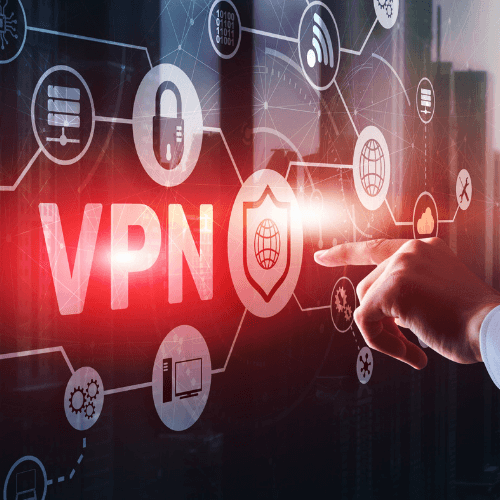It’s a common misconception that online activities can be easily hidden by switching on your browser’s incognito or private mode, as this only conceals activities locally. In other words, the browser deletes the user’s browsing history, hiding it from those who share the computer. However, it doesn’t prevent online activity from being tracked by websites, ISPs, and other companies. This data can then be sold to data brokers to create a profile of your online activities. Nevertheless, using a virtual private network (VPN) removes these concerns, as it ensures private browsing in many different ways:

When set up, a VPN establishes an encrypted connection with a secure server. This means that websites will see your location as the VPN server IP rather than your actual IP. While the internet provider still sees some activity, it’s unable to decode it, as information is encrypted end to end. Providers like NordVPN offer a dedicated IP address with servers all around the world, which means that anyone accessing your location will believe that you’re browsing from somewhere else.
All software has its flaws, and VPNs are no exception. Just like any other program, they may stop working for no apparent reason. This wouldn’t be a problem if it didn’t suddenly expose all the activities that were being hidden since data stops being encrypted. However, a kill switch disables the internet connection when a VPN unexpectedly turns off. This ensures that your activities stay concealed, as there are none to speak of until the software has restarted.

When going from web page to web page, the browser logs your browsing history, which can be looked at by the ISP and various third parties. This soon results in personalized ads popping up while visiting different sites due to the cookies the browser stores. Frustratingly, you will continue to be targeted by these tailored advertisements even after quitting the program and launching a new session. This is where a VPN steps in. When connected to a VPN server, your activity is hidden and your location changes. This way, ads that appear are localized rather than personalized. What makes this feature even better is that some VPNs follow a no-logs policy, meaning that activities are a secret even to the companies they belong to. That being said, the browser still logs your browsing history, so it’s advised to activate incognito or private mode.
It’s important to mention that you should be wary of free services, as some are known to sell users’ data. Still, there are notable exceptions like PrivadoVPN – a service that is just as secure when accessed for free as it is when paid for.
Using public Wi-Fi has many benefits. Regardless of where you are – be it your favorite coffee shop or in public transportation – you can freely without using mobile data. But while it’s convenient, using public Wi-Fi has more downs than ups. For example, hackers can easily take a peek at what you’re doing and fetch sensitive information, such as credentials and credit card details. Additionally, network administrators are able to see all your browsing activity. Therefore, a VPN can be of great help to stay protected and private when connected to a public network.
Another downside is that companies and websites often use GPS tracking to locate you. This isn’t as damaging as hackers stealing from you, but it’s certainly unsettling. Other than switching on a VPN, you also have to disable HTML5 geolocation in your browser so that the company or website starts tracking through the IP address again – which is now encrypted anyway.
It’s no small task to stay private when all our devices are connected to the internet. Whether it’s when working or playing online games, the average person rarely thinks about how much they share. Still, a VPN is typically an inexpensive way to protect yourself, and such low costs are worth your while if it means avoiding exposing your life to prying eyes.
Share your thoughts, ask questions, and connect with other users. Your feedback helps our community make better decisions.
©2012-2025 Best Reviews, a clovio brand –
All rights
reserved